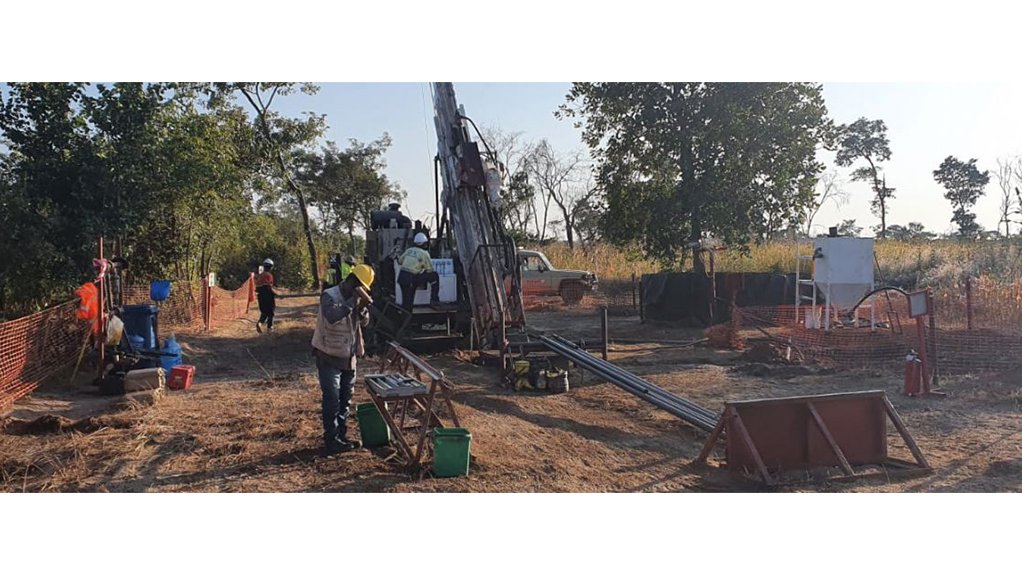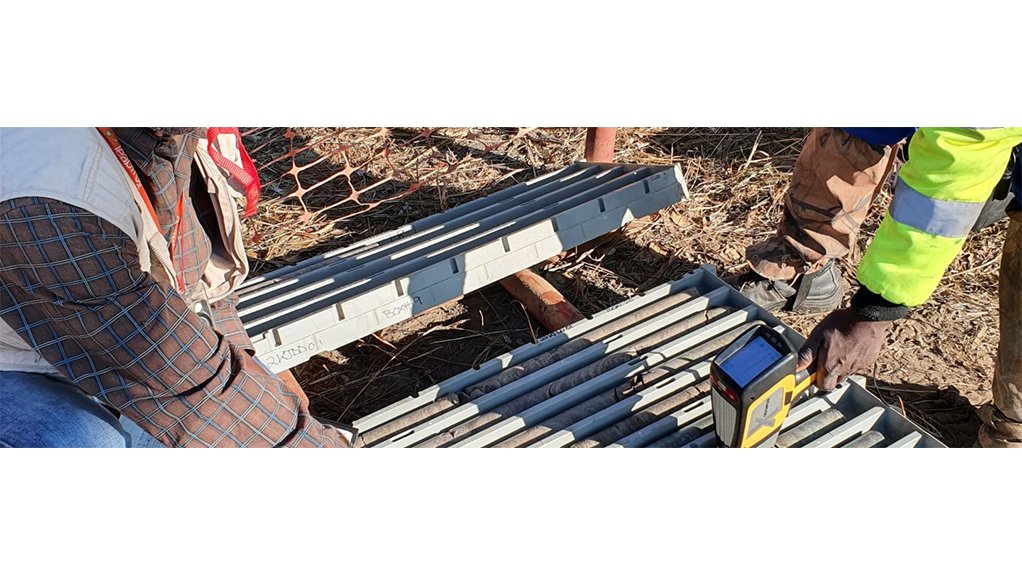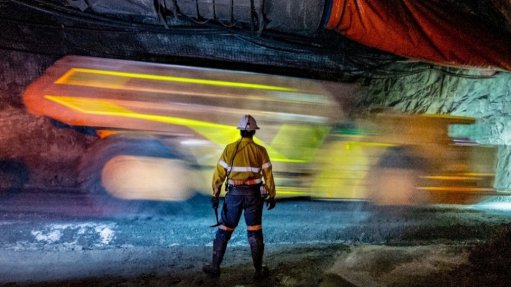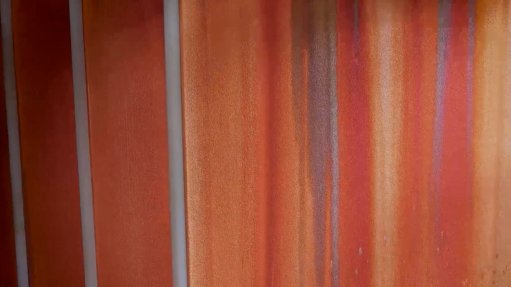Drilling results confirm historical data



NEXT STEPS Planning is now under way to further evaluate the historical copper soil anomaly at the Jacks prospect
Photo by Tertiary Minerals
POSITIVE PROSPECTS Laboratory assay results from the Jacks copper project have confirmed and built on historical results
Photo by Tertiary Minerals
The first drill programme undertaken at the Jacks copper project in Zambia has intersected significant copper mineralisation in all four diamond drill holes, says AIM-traded mineral exploration and development company Tertiary Minerals, whose strategic focus is on energy transition metals.
The Jacks prospect lies in exploration licence 27069-HQ-LEL, which covers 141.4 km2 and is located 85 km south of Luanshya, in Zambia.
The positive laboratory assay results from the Jacks copper project, where the company is earning a 90% joint venture (JV) interest, have confirmed and built on historical results, says Tertiary Minerals executive chairperson Patrick Cheetham in an AIM announcement on June 29.
Hole 22JKDD01 yielded 13.5 m grading 0.9% copper from 77.5 m downhole, including 3 m grading 1.7% copper from 79.5 m and 3.5 m grading 1.2% copper from 87 m.
Hole 22JKDD02 revealed 7 m grading 0.6% copper from 54 m and 3 m grading 0.8% copper from 191 m.
In hole 22JKDD03, 6 m grading 1.8% copper was discovered from 105 m, as well as 4 m grading 2.4% copper from 106 m, while results from hole 22JKDD04 presented 14 m grading 0.8% copper from 27 m, including 2 m grading 1.7% copper from 27 m and 5 m grading 1% copper from 35 m.
“The impressive copper hits in all four holes [also] demonstrate continuity of copper mineralisation over an open-ended 350 m strike length. Given that the Jacks prospect lies within a 16-km-long soil geochemical anomaly, it is clear we are dealing with an exciting target with considerable potential.”
Planning is now under way for further evaluation of the historical copper soil anomaly.
Tertiary Minerals has given notice to JV partner Mwashia Resources that it has now earned a 51% interest in the Jacks project licence, and has duly exercised its option to continue earning up to a 90% interest.
The Jacks project is one of five licences in Zambia where Tertiary Minerals has the right to earn up to a 90% interest from Mwashia Resources, which has made good progress on the environmental permitting required to start exploration on the four other licences in Tertiary Minerals’ Zambian portfolio.
“We look forward to a busy and productive work programme during this dry season,” adds Cheetham.
More About Jacks
The rocks hosting the known copper mineralisation in the licence hosting the Jacks prospect comprise basal Katangan Supergroup sediments, including the Lower Roan Subgroup, the main copper mineralised rock sequence in the Central African Copperbelt.
Mineralisation occurs within the southern limb of a large asymmetric synclinal fold structure that has an east-west trending axis and a westerly plunge. The northern limb dips 15º to 25° to the south demonstrated by historic drilling as well as from mapped outcrop.
Previous work reports that the dips on the southern limb are variable between 60º to the north and vertical with local overturning. The detailed geometry of the syncline and interpreted parasitic folds is poorly understood and further interpretation is required.
Within the licence area, past exploration has defined a 15-km-long soil geochemical anomaly that broadly follows the southern and northern limbs of the syncline. The Jacks prospect sits close to the nose of the syncline at its eastern end.
During drill planning, the company created a three-dimensional model of the mineralisation based on the interpretation of historical exploration data which suggests that copper occurs in either two separate mineralised horizons which may be discrete mineralised zones or one refolded horizon. The results of drilling broadly confirm this interpretation. The two mineralised zones, now named the North Zone and South Zone, dip steeply north toward the axis of the syncline.
Article Enquiry
Email Article
Save Article
Feedback
To advertise email advertising@creamermedia.co.za or click here
Press Office
Announcements
What's On
Subscribe to improve your user experience...
Option 1 (equivalent of R125 a month):
Receive a weekly copy of Creamer Media's Engineering News & Mining Weekly magazine
(print copy for those in South Africa and e-magazine for those outside of South Africa)
Receive daily email newsletters
Access to full search results
Access archive of magazine back copies
Access to Projects in Progress
Access to ONE Research Report of your choice in PDF format
Option 2 (equivalent of R375 a month):
All benefits from Option 1
PLUS
Access to Creamer Media's Research Channel Africa for ALL Research Reports, in PDF format, on various industrial and mining sectors
including Electricity; Water; Energy Transition; Hydrogen; Roads, Rail and Ports; Coal; Gold; Platinum; Battery Metals; etc.
Already a subscriber?
Forgotten your password?
Receive weekly copy of Creamer Media's Engineering News & Mining Weekly magazine (print copy for those in South Africa and e-magazine for those outside of South Africa)
➕
Recieve daily email newsletters
➕
Access to full search results
➕
Access archive of magazine back copies
➕
Access to Projects in Progress
➕
Access to ONE Research Report of your choice in PDF format
RESEARCH CHANNEL AFRICA
R4500 (equivalent of R375 a month)
SUBSCRIBEAll benefits from Option 1
➕
Access to Creamer Media's Research Channel Africa for ALL Research Reports on various industrial and mining sectors, in PDF format, including on:
Electricity
➕
Water
➕
Energy Transition
➕
Hydrogen
➕
Roads, Rail and Ports
➕
Coal
➕
Gold
➕
Platinum
➕
Battery Metals
➕
etc.
Receive all benefits from Option 1 or Option 2 delivered to numerous people at your company
➕
Multiple User names and Passwords for simultaneous log-ins
➕
Intranet integration access to all in your organisation




















